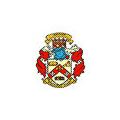Studies & Degrees in Language Teaching
Choose where you would like to study Language Teaching:
ArgentinaBoliviaCanadaChileChinaColombiaCroatiaDenmarkEcuadorFranceGermanyGuatemalaIndiaIrelandIsraelItalyMaltaMexicoNepalNicaraguaPeruPhilippinesPortugalSpainThe United KingdomThe United StatesTrinidad and TobagoUkraineUruguayLanguage Teaching Study Programs
Level: Undergraduate Bachelors
Location: Villanueva de la Cañada
Those who study language teaching aim to educate students at various institutional levels in a particular language. These teachers not only earn fluency in their chosen language, but also possess the necessary instructional skills to teach students how to speak, write and otherwise communicate in the language.
Many universities and colleges offer various language education programs. It is common for students in this area to undertake several educational paths. The first is to take a unified major resulting in a language teaching degree (such as Foreign Language Education or Teaching Foreign Language). Another is to earn a degree in education with a minor or specialization in the chosen language. Less commonly, candidates may take only a teacher education course, being already fluent in the chosen language.
It is possible to take online courses that will provide language teaching credits and certifications (such as an ESL degree). Sometimes study-abroad programs or work-study programs will educate individuals in language and teaching studies on-the-job.
It is also common to pursue studies individually, earning certification from a language speaking and teaching test (such as TESOL or CELTA). This allows for employment in many countries without the need of post-secondary education.
Skills, Qualifications, and Prerequisites for Studies in Language Teaching
Universities, online programs and colleges will usually require applicants to posses a secondary school completion certificate and pass a standardized aptitude test, before admitting them to a study program. Some study abroad and work-study programs may require some post-secondary education, while others will have no prerequisites aside from a language proficiency. Self-education, though not as common, has no prerequisites, though individuals must earn a certification or other credential to practice teaching in many places.
Fluency in the language of choice is highly preferred prior to language teaching study. Knowing the spelling, grammatical structure, linguistic and cultural aspects associated with the language will make language teaching study much more accessible. Great interpersonal and communication skills, along with a passion for learning, are extremely beneficial to the future language teacher.
Skills and Qualifications Acquired from Studies in Language Teaching
Language teachers that pursue an intensive course of study will be able to:
- Achieve verbal and auditory fluency in the teaching language.
- Achieve fluency in the spelling, grammatical, and linguistic aspects of the chosen language.
- Achieve listening and interpretation skills.
- Acquire mastery on nonverbal and cultural aspects of the language.
- Employ approved teaching strategies, activities and projects.
- Determine grade-level or fluency-level appropriate coursework.
- Employ current research and theories in teaching practices.
- Utilize various assessments.
- Develop a teaching philosophy.
Careers for Studies in Language Teaching
Language teaching mainly prepares students for a career as an educator in the language. They are usually able to teach at any educational level, whether primary, secondary or post-secondary. Some post-secondary schools, however, will require a certain level of education before employment. These students may work for public schools, private institutions, non-profit organizations or even as private tutors. More rarely, language teachers may choose to teach in a different field
It is possible to teach a language without having a degree of formal education, though it is extremely rare. Organizations that work overseas or school systems in different-language countries will accept volunteers and employees for language teaching.


